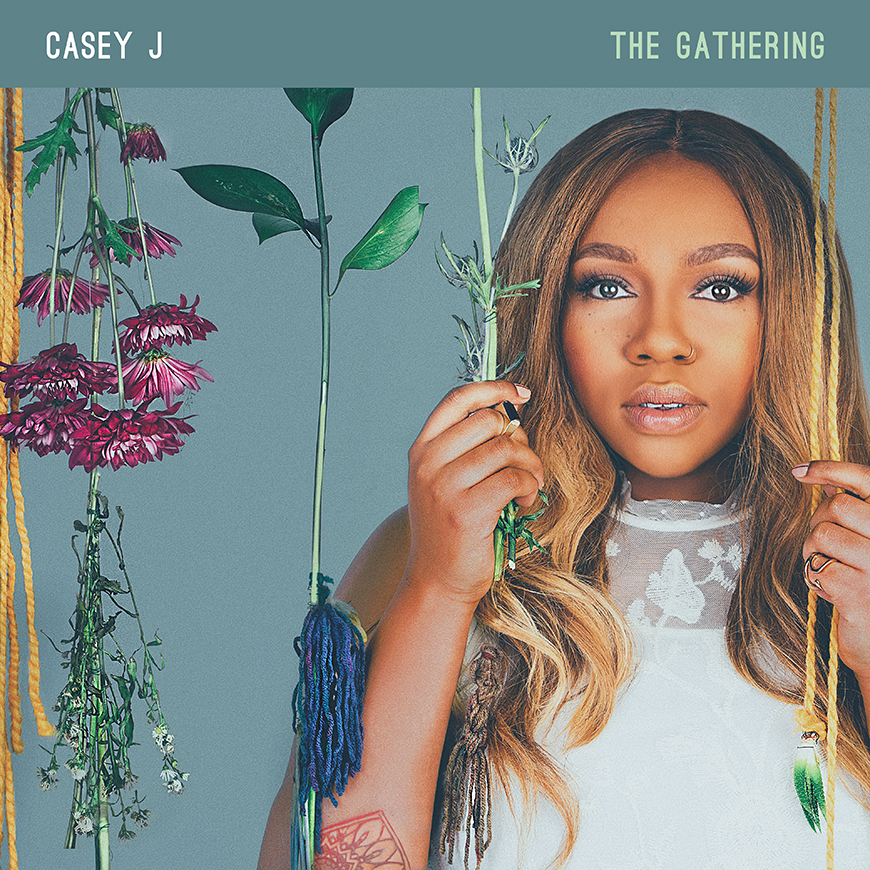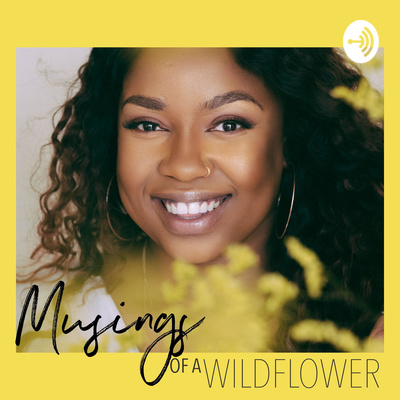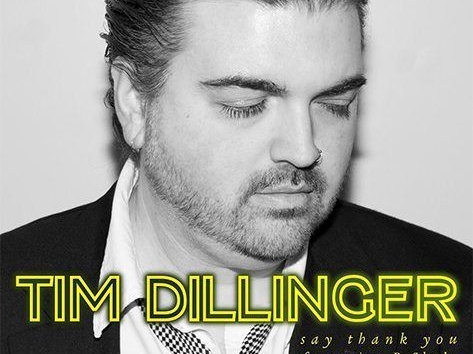
Grown Folks Music chatted with gospel music artist Casey J about her sophomore album, The Gathering, her podcast, and why having God’s trust is her standard as a creative and a worship leader. Read below and enjoy.
Beyond the Walls
GFM: I read that you have a heart for ministering to those who are in the church as well as those who are not, and you even do pop-up worship events in public spaces where all are welcome. You recorded your new album and the videos for it in a non-traditional worship space. Why is it so important to have what you do reach beyond the literal and the figurative walls of the church?
CJ: First, I think that really is the heart of the gospel when we literally talk about it. Growing up in church… that’s my context. I know more about the local church than I probably know about any other place. Even as I get older, even as I start to travel and do things inside of the worship space in local church gatherings, I started to get concerned that maybe what we’re doing is for more each other. We’re kind of meeting together to accommodate one another and not really thinking about people that may not come to those types of gatherings. It really sets a challenge for us. It should cause a level of conviction if the only thing you do is go to a place and you all make each other feel good. What about people who aren’t a part of that? So, for me, my heart started to break for what I think really breaks God’s heart– which is this sort of exclusivity of church and church culture.
For me, going to places where you know people are and not depending on church jargon and things that are very specific to a culture that has developed in local assemblies is really, really important. It allows us to walk out the entirety of our calling as disciples. More than that, I think that is the heart of God.
The Gathering
GFM: The album is called The Gathering. How do you feel this particular collection of songs gather people or bring them into a space of worship?
CJ: The music in and of itself is intentionally singable. For me as a songwriter, the two things that I consider is whether something is Biblical and whether something is accessible. There’s all types of music that’s out on all kinds of mediums and platforms and I appreciate a lot of it. Even inside of the faith-based world there’s all different styles and different expressions.
I’m a worship leader. Anything that I sing or write that isn’t accessible for other people to sing is outside of my realm of calling. The music is intentionally simple enough that maybe if you’ve never heard the concept or heard the melody before you can grasp it. But, it’s biblically sound enough that even if you’ve been saved your whole life… my mama used to call it ‘born on a communion table’… you can still resonate with the truth of the lyrical content of what’s being written.
It was definitely a challenge. As a creative I have relationships with people who are Christian creatives and people who aren’t. I think as creatives we’re always making up stuff. That’s kind of what we feel comfortable doing. As a Christian creative I have a secondary standard which has become my primary standard which is, ‘What would God say?’ So, maybe it isn’t something that I would say myself or something that feels good to me or makes me feel most comfortable. But, if it’s what he says then that’s what I’ll write. The fruit of that is even in the short time that the album has been out it has impacted so many different kinds of people.
Artist and Steward
GFM: You had a big debut with your first album. You won the Stellar Award for New Artist of the Year. As you set out to do you sophomore album did you have a different approach and intention than the first album… either creatively or specifically with a mission or end goal in mind versus what you had for the first album?
CJ: I like the way you worded it… my intention for the second record. Most people know that I used to teach elementary school. But, I think one of the things that is not as well publicized is that I was actually teaching when my first record came out– full time. I think people though I was traipsing around [and] writing songs [laughs]. No, I was at work. I was clearly at work when my record came out. Because of that there’s a lot of things about the actual music business and writing and things that I was completely ignorant to. What I felt like was the best thing for me at the time was like, ‘I’ll just let the people who know that do that part and I’ll just sing and I’ll leave it alone.’
Since that [time], God has just revealed to me what it means to be a good steward. As a worship leader and a songwriter, particularly a Christian songwriter, we think that we’re only stewarding what happens when we have the microphone in our hands. What I’ve learned is that I’m stewarding the entirety of my business. It’s an act of worship. If I know what publishing is… if my business is incorporated… if I know what a W-2 is… all of those things matter and they’re all worship.
Being able to hone in on those things [and] areas that I kind of shied away from in the first record has really proven to be not just successful like what people think about when they think about business like, ‘Oh, you make more money.’ Not in that way, but I feel like I’m honoring God more by going out of my way to learn about everything that he’s called me to. I can see that in the way that I approached the second album– how clear I was about the vision for the album. [By] not having it at a church… not inviting celebrities… not having guest artists or anything on the record. Being really clear about what I’m called to. I think that took time to develop.
“I Want God to be Able to Trust Me”
GFM: You’ve touched on it a little bit, but what do you think the biggest growth has been in your writing?
CJ: I am, and I say this with all humility…I am blessed to be able to call some of the most prolific songwriters that I know friends and family. J.J. Hairston is my brother. Dion Kipling is my brother and Kirk Franklin. These are people that I’ve admired for years. So, I when think [about myself], ‘Oh you’re a songwriter,’ I’m like, ‘No, they are songwriters. I just write songs sometimes.’
I think I knew it over a certain number of years. Earlier this year I had an chance to be around a writer named Ken Medema. I watched him prophetically write about four verses, a chorus and a bridge in the exact moment that God was saying it. I started thinking about when as songwriters we think about what’s important and what matters. We’re like, ‘Oh, I wanna have a number-one hit. I wanna have my song be number one.’ I’ve been able to experience that and that’s amazing and that’s great. But, in that moment I realized what I really want is I want God to be able to trust me to say what he’s saying right when he says it.
That has been my strive as a songwriter… not to figure out what rhymes with worship… which is nothing. No word rhymes with worship [laughs]. Not that, but to be able to say, ‘You know God, my pen is whatever is on your lips. Whatever you want to say, I want you to be able to trust me.’ I want that to be my legacy more than being creative or being clever.
Intentional Music
GFM: I find that for The Gathering the style seems more organic. It’s not slick. There are all [different] styles… even in gospel [music] and it reaches who it’s supposed to reach. I just think your style is more organic. Is that purposeful? Or, is that just kind of the way things worked out?
CJ: I think it’s a little bit of both. A portion of it is really purposeful. As I grow and as I become of more service to God, I become even more clear about what I’m called to do. Like you said, there’s a thousand different lanes. [There are] all kinds of ears, all kinds of tastes, and all kinds of genres and all those type of things. But, I am called to serve people and to create worship music that is accessible for people.
I think there is some intentionality behind not being SO polished, or not using SO much vocal acrobatics that people are like, ‘Oh, I don’t sing like that.’ I know what that feels like. Even as a singer I know what it feels like to sit in front of some people who can sing, sing as people would say and it’s like, ‘Oh, yeah… I don’t do that.’ In the gospel arena I don’t have a really super-strong voice. I have the same little-bitty voice I’ve had since the fourth grade. I’m 30 [laughs]. This is as loud as it gets. I can’t growl. I can’t squall. I can’t even shout. I can’t do any of those things. I know what that feels like to hear something and say, ‘Man, that’s amazing, but that’s outside of my personal capabilities.’
I think we intentionally create melodies and music lyrical content that people can not just hear, but they can also do because God is not calling us to be performers. He doesn’t have a need for that. Even in Acts 4 it says, ‘After they had prayed the place that they were gathered together became shaken and they were filled with the Holy Spirit and they walked away speaking the word of God with boldness.’ I take that really seriously. If somebody’s in a gathering where I’m leading and they walk away feeling defeated or like, ‘Dang. I wish I can sing better. That was good, but geez she was amazing.’ If that’s what they walk away with and they can’t take the words of God that are inside of the lyrics and sing them or speak them with boldness, I haven’t done my job.
Some of those things just happen naturally. Like I said, I just can’t squall so I’m not gonna do it because it’ll just sound like a squirrel or a cat or something like that. So, for everybody’s sake I don’t do it [laughs]. But, there is some intentionality around the way that we craft the music and the lyrics.
GFM: What are your goals for your creative company and your label imprint?
CJ: Man, that’s always such a hard question. I think it’s always heart felt and I appreciate you asking it. I think about where I was three years ago or five years ago and I wouldn’t have known to set where I am now as a goal. To say, ‘I wanna have a podcast. I wanna have my second record, I wanna be a label. I wanna have an imprint.’ I didn’t even know to articulate that as a goal. I think somewhere inside of me I knew that I wanted to be available and I wanted to be used. Even now, like what I was sharing with you about that experience that I had in the presence of Ken Medema– I wanna be trusted.
The fruit of that is that you’re able not to be limited by what would be your own goals. I think if I would say, ‘Now, what do I want in five years,’ and I just thought about it in my own self, I wouldn’t be able to scratch the surface of what God could do in five years. I can’t scratch the surface of what he could do in five months or five weeks or the next five minutes. Instead of making those type of goals I really try to cultivate being a servant and being available for God to inspire me to do what he’s called me to do. That has produced more fruit in my life than like, ‘Let’s pull out my planner. My ten-year plan is…’ God has just been able to use me and I feel of more service not setting those type of limitations. I know that’s a round about way to not answer your question [laughs], but that’s really my heart.

Musings of a Wildflower
GFM: You have a podcast? Tell me about that.
CJ: I have a podcast called Musings of a Wildflower. It’s available wherever you listen to podcasts. Yesterday, I had to explain to my mom a. What a podcast was and b. Why I have one [laughs]. She was like, ‘Well, is anybody listening to it?” I said, ‘First of all, that’s disrespectful as parent. Just assume people that people listen Mom, thank you [laughs].’ I showed her that most people listen on Apple, but it’s on Spotify [and] it has its own house on a site called Anchor.
I call this the world of influencers. Everybody’s an influencer. You go on Instagram and there’s all these perfectly-curated pictures and there’s not a hair out of place. People laying in bed waking up with a full face of makeup. I don’t know how y’all do it. Cool, whatever. I think sometimes there’s this idea that because people have a platform, they also have perfection… that they have it all together and they have all this revelation. What I’ve realized is yeah, there’s some things I know a lot about. You need me to come help your praise team? I got you. You need me to help you understand how not be selfish? I’m working on not being selfish [laughs]. Let’s call a thing a thing.
It was really important to use my platform and use my influence to not just talk about things in a sort of testimony theme– ‘Ten years ago, I struggled with this…’ There’s still some things that I’m trying to figure out, I’m trying to learn and I’m still ruminating over. I am really clear that God has called me and graced me to be a storyteller. I kind of do what I would call modern-day parables. I tell personal stories or stories of other people that I love that [they] allow me to share. Or, they get on and share it for themselves. In that we kind of tie in revelations that we have about the nature of God and what he requires of us. Sometimes it’s wrapped in a really nice neat bow. Sometimes it’s not and I love that.
Casey J’s sophomore album, The Gathering is out NOW. Season two of her podcast, Musings of a Wildflower is available here. Follow Casey J on Instagram.
RELATED POSTS
August 16, 2013
GFM Spotlight Interview: Tim Dillinger
June 17, 2011
GFM Spotlight Interview – Adriana Evans
August 22, 2013
GFM Spotlight Interview – Teisha Marie
September 20, 2011
GFM Spotlight Interview – Noel Gourdin
November 24, 2017






